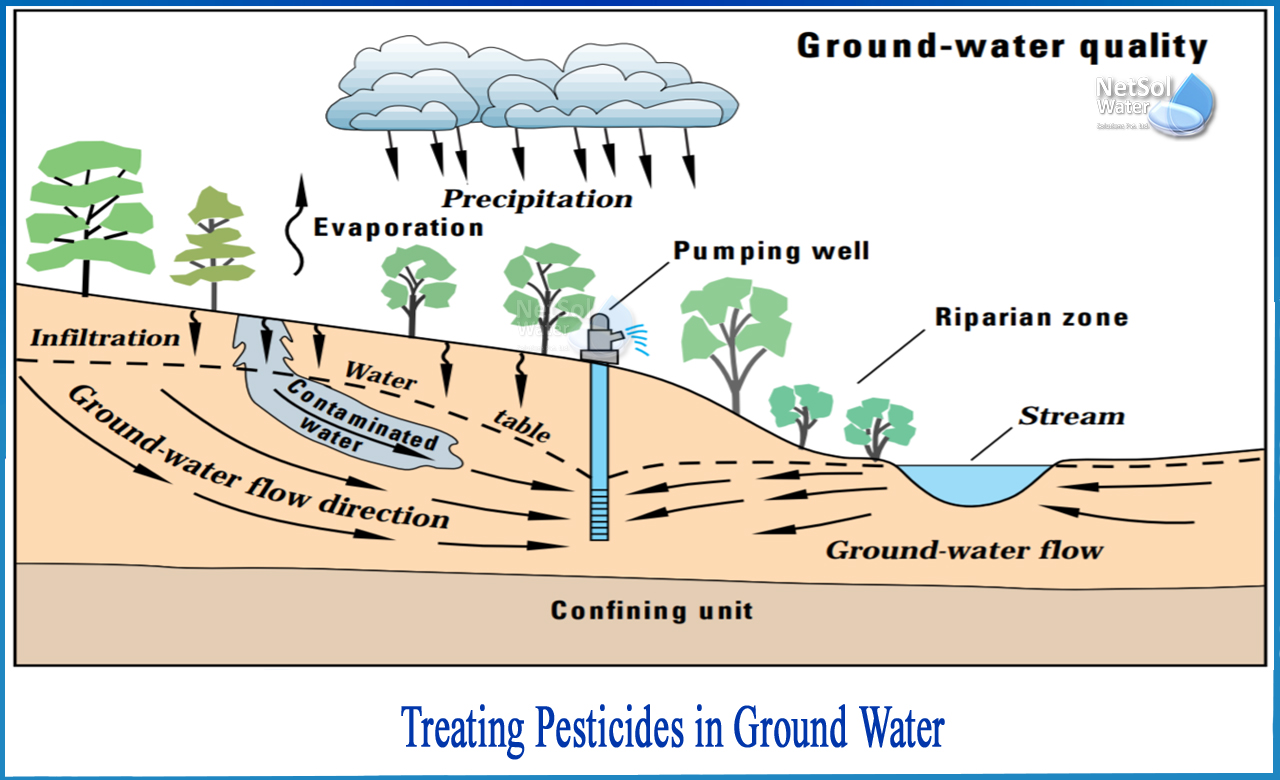How to treat pesticides in ground water?
Chemical pesticides are used to kill or control pests including insects, weeds, fungus, bacteria, rodents, fish, and any other organism that causes a problem. Farmland, gardens, and lawns are the most common places where pesticides are used. Pesticides are also used to manage mosquitoes, weeds, and exotic fish species in water bodies (such as rivers, canals, and lakes).
Drinking water pollution by pesticides is fairly prevalent, particularly in agricultural areas. Accidental or unlawful pesticide spills or dumping can contaminate drinking water, and even proper pesticide application can contaminate drinking water via leaching into groundwater or discharge onto surface water bodies.
Pesticides have the potential to contaminate groundwater
Pesticide pollution of underground water is a national concern because it provides drinking water to more than half of the country's population. This is particularly concerning for those who reside in agricultural areas where pesticides are frequently used, as almost everyone depends on groundwater for drinking water.
Soil was supposed to operate as a protective filter, preventing pesticides out of groundwater until the mid-1970s. Pesticides can enter water-bearing aquifers through crop-field applications, seepage of polluted surface water, spills and leaks, inappropriate disposal, and even injection of waste material into wells. As a result, pesticides must be extracted from ground water in order to maintain the water safe.
Health Effects Associated with Pesticides in Drinking Water
Pesticides come in a variety of forms, each with a varying amount of toxicity. Pesticides in drinking water provide health hazards depending on how poisonous the substance is, how many are in the water, and how much a human is exposed to the polluted water. Pesticides can cause organ damage, cancer, reproductive impacts, birth defects, and nervous system harm in excessive amounts, which can arise from direct exposure to pesticides. Although pesticide concentrations in drinking water are typically modest, some pesticides are harmful even at much reduced numbers.
Field practices for treating pesticides in ground water
Pesticide runoff, leaching, and groundwater and surface water contamination can all be reduced by using the following field practices:
- Think about the geology in your area. Be conscious of the depth of the water table and the permeability of the geological strata between the surface soil and groundwater when planning herbicide applications.
- Take into account the soil and field conditions. Determine the soil or field site's susceptibility to leaching or runoff. Chemical transport into groundwater is influenced by soil texture and organic matter content in particular. Surface runoff is also influenced by the slope of the field.
- Decrease the amount of compaction. When soils are compacted, surface water drainage increases.
- Reduce erosion and surface runoff by using conservation strategies. No-till and other forms of conservation tillage, raising crop residues, planting cover crops, planting grass streams to slow soil and water flow, and maintaining buffer strips to protect surface water boundaries are all examples of these methods.
- Implement Integrated Pest Management (IPM) strategies. Combine chemical control with additional pest management strategies like tillage, cultivation, crop rotation, and pest scouting to reduce herbicide use.
How to Treat Drinking Water for Pesticides?
Reverse osmosis or granulated activated carbon (GAC) filters can remove pesticides from drinking water. Reverse osmosis works by forcing water through a membrane that allows water to penetrate through but prevents bigger ions or molecules, such as those linked with iron, lead, or pesticides, from passing through. In most residences, reverse osmosis systems are tiny (referred to as point-of-use systems) and installed near the kitchen sink.
Reverse osmosis systems are inexpensive, but they can only generate a few gallons of treated water per day on the low end. Recent advances in membrane elements have enabled more expensive technology to produce 100 gallon or more per day. The minerals being removed may alter the taste of the water.
Pesticides can be removed using a variety of Netsol Water household and commercial systems. Even if your water comes from a municipality, we strongly advise you to get one.
Netsol Water is Greater Noida-based leading water & wastewater treatment plant manufacturer. We are industry's most demanding company based on client review and work quality. We are known as best commercial RO plant manufacturers, industrial RO plant manufacturer, sewage treatment plant manufacturer, Water Softener Plant Manufacturers and effluent treatment plant manufacturers. Apart from this 24x7 customer support is our USP. Call on +91-9650608473, or write us at enquiry@netsolwater.com for any support, inquiry or product-purchase related query.



